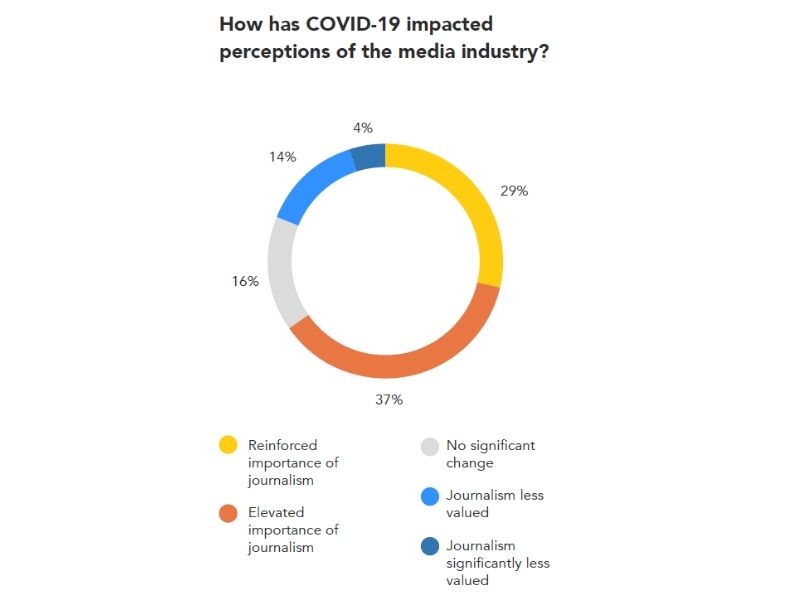John Amari 14 Mar 2022 // 11:08AM GMT

The Telum Asia-Pacific Journalism Survey 2022, a report that digs into the concerns of professionals in media and journalism in the region, finds that journalists have remained positive and focused on bringing news to the public despite major challenges.
While the pandemic and geopolitical tensions continue to disrupt people’s lives and livelihoods globally, the report shows that journalism is still held in high regard across society.
Based on a survey of 1,133 journalists, the survey shows that digital-first news consumption has placed new demands on journalists, requiring they produce real-time digital content that increases the bottom line of media platforms.
Moreover, digitalisation, the growth of social media, and geopolitical conflicts have led to an increase in fake news and misinformation; and what’s more, the latter has been compounded by Covid-19.
Surveying professionals in 10 markets in Oceania, Southeast Asia, and East Asia, the report gives an overview of current and future trends, including the most valued skills and best practices in news curation and production.
The report, which was conducted from November 2021 until January 2022 by Telum Media, shares actionable insights for communications professionals that they can use when helping journalists with their reporting.
According to the survey, journalists identified Covid-19 (71%), climate change (31%) and fake news (31%)*, as well as local political instability and uncertainty (30%) as their top challenges for 2022.
While 23% said that job security was a top concern this year, almost half (44%) of respondents shared that they were optimistic or cautiously optimistic about the future of the industry.
And this was despite pressures on traditional media business models; respondents shared that the top three sources of revenue for their platforms were advertising (50%), sponsored content (20%) and subscription (15%).
What’s more, Covid-19 had a bigger impact on the industry than any other cause: 37% said the pandemic elevated the importance of journalism and 29% felt that it reinforced the importance of the industry. And while 16% thought it had no significant impact, a significant number (14%) said the pandemic made journalism a lot less valued.
Indeed, Covid-19 caused widespread concern across all industries, leading to the so-called Great Resignation, when record numbers of people exited jobs and prioritised work-life balance. That said, 50% of respondents shared they plan to remain in their current role while only 8% shared that they plan to switch to a different industry over the next year.
Despite the challenges, disruptions and concerns, some things remained unchanged: the most important skills in the industry were still news judgement and verification (60%), writing and language (50%), and curiosity (48%).
As the industry evolves over the next three years, skills such as SEO (34%), data analytics (36%) and social media (31%) will become must-haves rather than merely nice-to-haves. And while video was thought of as king ten years ago, audio content is making a comeback—40% predict that audio will become increasingly important.
Other findings in the survey include:
> 38% of journalists preferred to be pitched stories as exclusives, 37% want it pitched directly to them and 87% are more likely to run a story if it’s pitched as an exclusive or as a relevant story.
> 87% picked press releases as their preferred pitch format, 61% shared that they desire high quality images to support their stories, 54% desire quotes or statements to support stories and over 51% desire supporting data.
*In some cases, participants had more than one choice, thus the total may add up to more than 100%.



































.jpg)

















